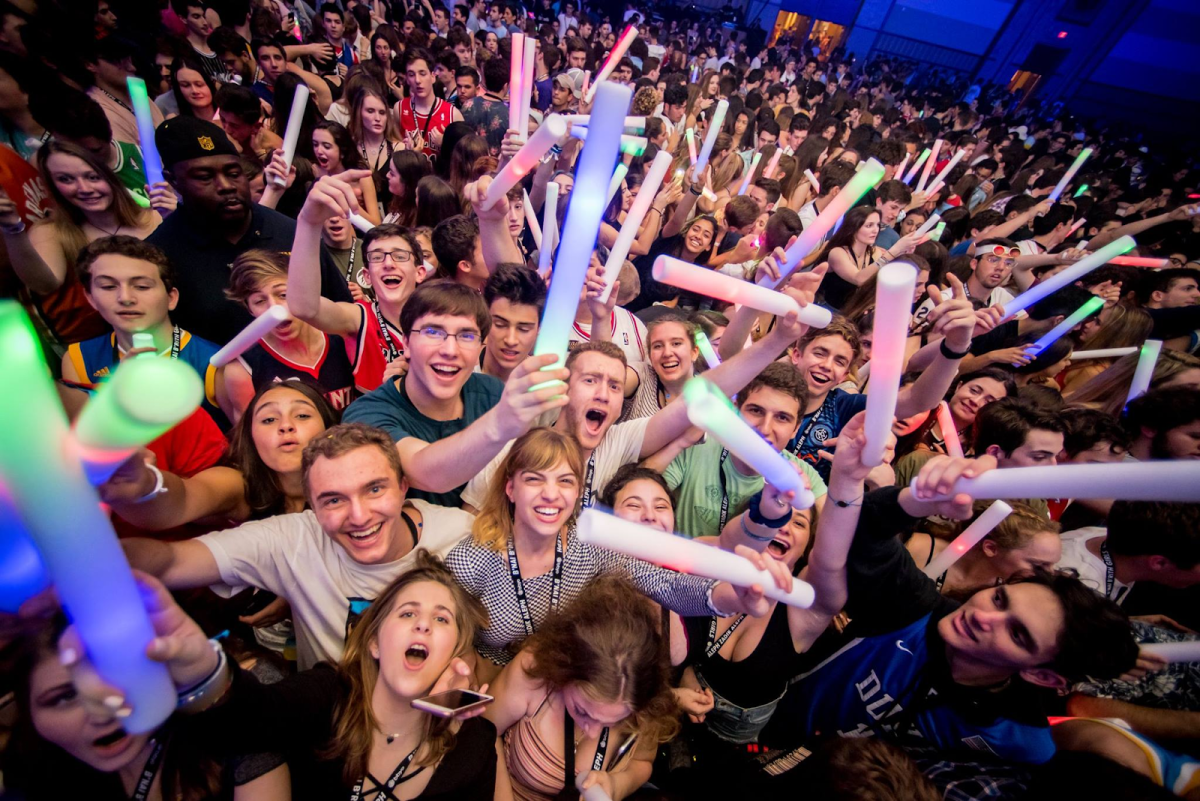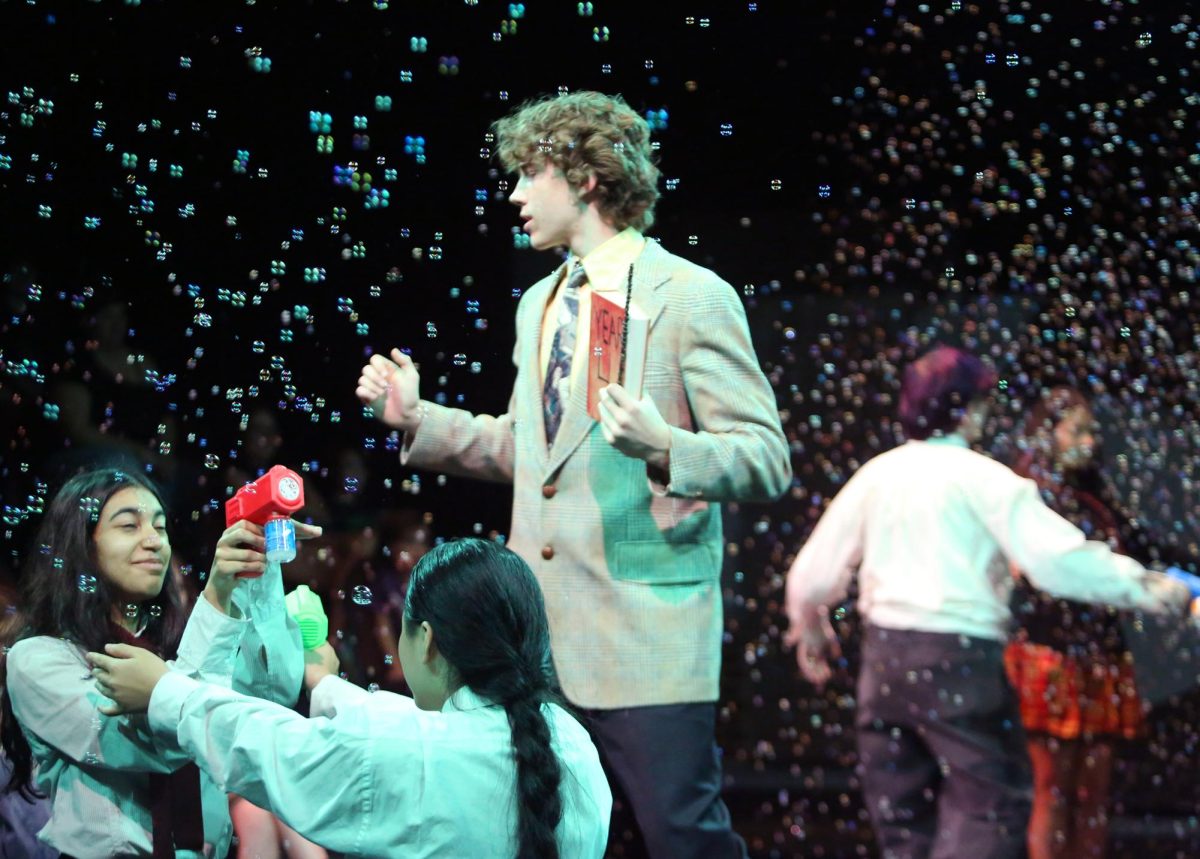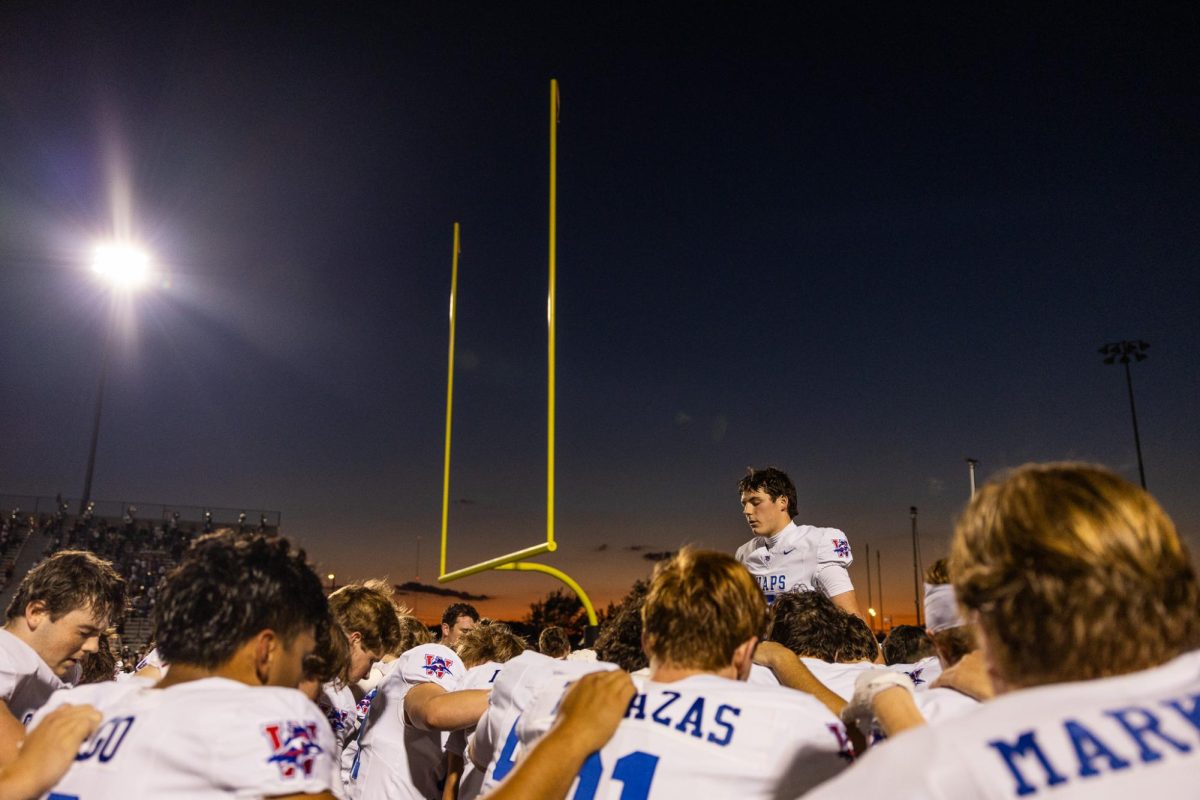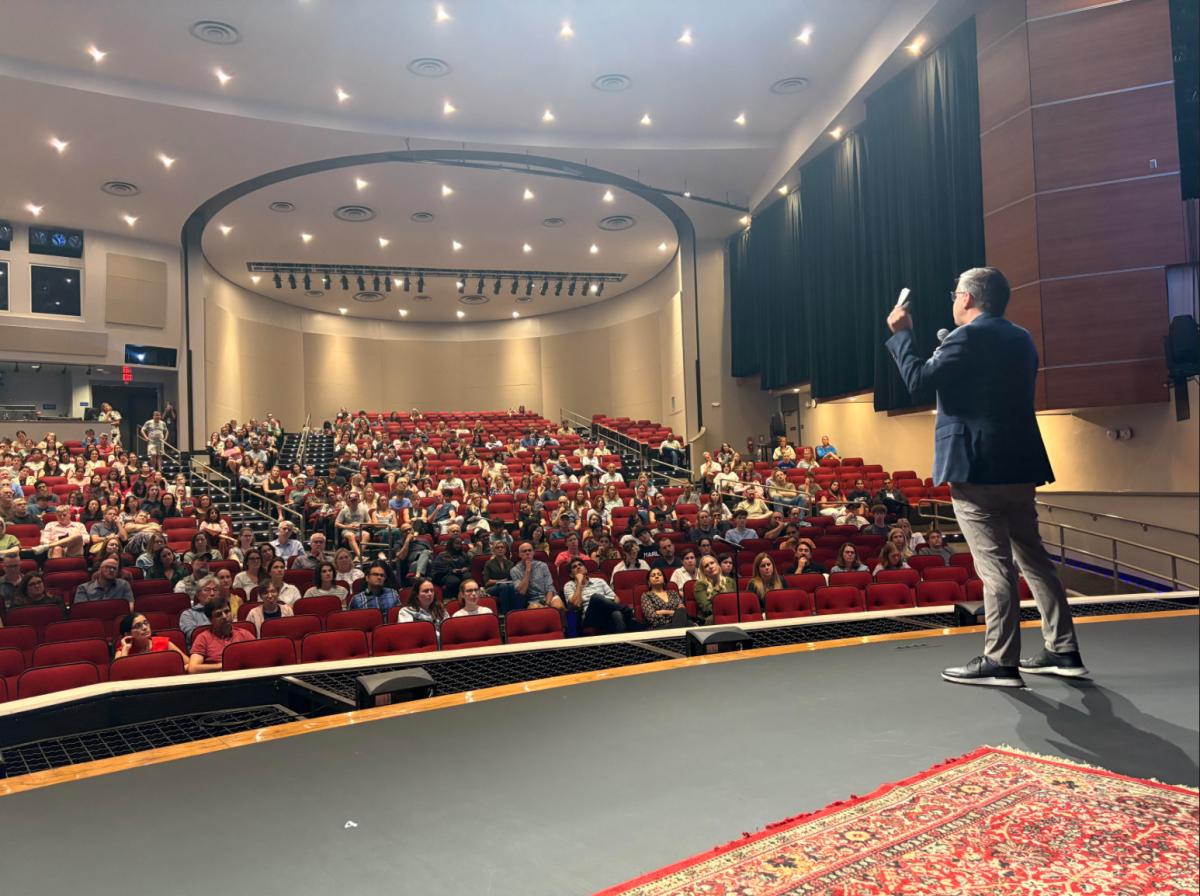The start of any conflict in the Middle East, especially when it involves Israel, will result in some degree of rising levels of Islamophobia and antisemitism in the states. The conflict that arose from the Oct. 7 attacks is no different than existing turmoil. The months preceding the event have been filled with a slurry of protests and unfortunate incidents of hate targeting both sides. This energy has especially caught fire on college campuses with protests, sit-ins, and incidents on almost every major college campus.
The Jewish community has reacted to the effects in large ways and has made efforts to condemn college leadership. After footage of testimony from college leadership referring to antisemitism on campus surfaced, many of the said leadership had to resign or be fired due to backlash from the Jewish community. Jewish people love talking about antisemitism on college campuses. If you ask any middle-aged Jewish mother in the US what they think about any college they will most likely equate its campus to an antisemitic wasteland that they wouldn’t dare send their children to, even if the university is over 15% Jewish. While yes, there is a problem on college campuses regarding antisemitism and even Islamophobia; most Jews tend to overestimate the effect and the proportion of the problem. No, you will not immediately be attacked just for being Jewish on every college campus even if incidents like those have occurred.
There is a problem of antisemitism on college campuses and the US as a whole. While the problem is most definitely overlooked by leaders outside of the Jewish community there is a bigger problem afoot for American Jewry as a whole. More and more throughout the country, Jews are beginning to get more and more assimilated into American society. Jews are ditching their ancestral path and not carrying on Jewish tradition, religion and race to their children. This could be a bigger threat than any antisemitism on any college campus, and this threat is completely overlooked; it’s been affecting American Jews right under our noses. Jewish children are forgetting who they are and many of them don’t even consider themselves Jewish anymore. This creates the argument: what is a bigger threat to the American Jewish race, religion, and community, antisemitism or mass assimilation?
Firstly let’s tackle how to define what both terms mean. Antisemitism is pretty clearly defined: hostility and prejudice towards the Jewish people. It is also quite easy to spot general hate towards Jews. Throughout history in America Jews have been subject to large scale prejudice but it has evolved overtime and traditional violent and physical attacks against Jews are not as present. Instead it’s mostly stereotyping, hate speech, and misinformation. A lot of people consider anti-zionism a facet of antisemitism, but that is a whole different and nuanced topic.
Jewish assimilation can be defined as the gradual cultural assimilation and social assimilation of Jews into their surrounding American culture. This on the surface doesn’t seem like an issue. In fact, the general assimilation of Jews can help them better end marginalization and can help them better integrate in the business world and become a more successful community, both good things for any race or group. Jews did effectively use assimilation to their advantage when they were initially escaping European prejudice and immigrating to America. They assimilated into American business and banking practices and did not alienate themselves from the corporate and entrepreneurial world. Jews were able to build successful lives and successful businesses through strategic assimilation. They created businesses and assimilated into the American banking world. They used assimilation to their benefit but they still managed to keep existing traditions alive and build a bustling Jewish community within America. Although in the early stages of Jewry in America assimilation was harmless to their culture it has evolved into a bigger threat. Defining assimilation as an issue is slightly harder.
Jews as a whole have a hard time defining themselves. Race? Religion? Ethno- religion? Every Jew has a different definition for what their people are, and that makes it hard for some Jews who aren’t engrossed into a Jewish community to properly connect with their background and identify as a Jew. This leads to people giving up, not associating with Judaism, no matter how you define it. Assimilation in the early stages of American Jewry wasn’t a problem because they weren’t ditching any part of their background, they were just merely adopting American ideals. Modern assimilation is such a threat and can properly be labeled as concern because in masses more and more Jews are completely dissociated with the idea of being Jewish and not because of a lack of faith in the religion.
This might sound a little overly dramatic. If it’s someone’s personal wish to extricate themselves from being Jewish, then that’s their personal business, and it’s really not anyone’s right to condemn them for that. The issue is that it’s not truly people’s choice to become assimilated into American culture, they have no choice but to. There are certain barriers that might exist and are stopping people from indulging in their Judaism. Jewish communities are extremely tight knit groups and though they aren’t closed off in any way, they might be intimidating or out of reach to certain people.
If you are a Jewish kid who has grown up in an environment without any Jews then your only outlet to Judaism would be through temple or extracurricular activities. If your parents aren’t pushing you to indulge in these programs, then there isn’t a huge chance Judaism will stick and this will effectively lead to assimilation. This is assimilation because it is a Jew who is not and never going to become involved in Judaism and is instead only partaking in American culture. This becomes a problem because that is effectively losing a Jew, if someone is not identifying as a Jew then they aren’t being officially counted as a Jew and the Jewish population will diminish over time. This really creates the main argument why assimilation is becoming a larger threat than antisemitism. More Jews are being lost to means of absorption than Jews actually being killed in antisemitic attacks in America.
Any high school campus has an abundant amount of assimilated Jews. Jews who didn’t have the resources to become effectively involved into their Jewish culture and then their Jewish background. Instead, they were absorbed into American culture and partake in those cultural activities without any connection to Jewish cultural activities. They will always have some degree of apathy towards Judaism and many times they have some level of resentment towards it, like it’s something holding them back or differering them from their friends. In college a lot of these kids have the opportunity to reconnect with their faith and many do; Judaism becomes an opportunity to meet people at a time meeting people is so desperately needed and Judaism becomes a bigger part of their identity. Unfortunately this is not always the case and people get farther and farther from the idea of being Jewish. So what is the solution to this?
Well let’s look at college campuses who like aforementioned can have the ability to rekindle peoples Jewish identities. These campuses have programs like Hillel and Chabad who host social and religious events for Jews to meet fellow Jewish peers. Programs like these, especially when well executed and actually enjoyable, are by far the most effective way to curb the effects of assimilation. Similar programs are available for high schoolers like BBYO (B’nai B’rith Youth Organization) and NFTY (North American Federation for Temple Youth). These youth organizations do a great job of building a Jewish community with an emphasis on community and makes religious participation optional. BBYO is especially effective at this by being pluralistic and secular in regards to varying Jewish sects. This can be really attractive to high schoolers as a way to indulge in their Judaism without the religious aspect. The only problem with these programs is getting people to join. How are you able to recruit Jews in gentile environments where they don’t have anyone encouraging them to join a Jewish community? That is one of the biggest underlying faults within youth groups as there is no effective solution to this yet.
Jews might also not indulge in youth Jewish programming because it’s just not an attractive venture to them. From the outside, the idea of a Jewish youth group does not sound like the most exciting way to spend your time even if that’s not the case. On top of that, it might be daunting for someone who has never been involved in these types of groups to venture out and meet new people. Additionally, the people in these groups are usually really involved. They usually share the same sentiments about their Jewish faith and are extremely engrossed into their respective movements. This might inadvertently alienate outsiders from the outside.
A lot of these youth organizations were founded or later organized in order to curb assimilation. In 1990, the National Jewish Population Survey came out with this statistic: The Jewish community had an intermarrige rate of 52%. This sent shockwaves through Jewish institutions who considered intermarrige as a threat to the community as a Jew marrying a non-Jew effectively means non-Jewish children, according to certain Jewish leadership. This is a slightly dicey topic. Considering intermarrige as an issue is slightly frowned upon as it’s a deeply personal topic and actively condemning people for marrying who they want to marry is not truly acceptable. The act of stimulating Jewish youth to meet other Jewish youth so intermarrige rates go down on the other hand, is not evil. After this survey came out, the race to get the youth involved in Jewish programming became a priority and these organizations boomed. The programming was also geared to meeting others and possibly creating lasting relationships. Andi Seiler, an advisor to a NFTY chapter once said “It’s good to go to programming and show up for services but really the point is to make connections that are so long lasting that one day you’ll have a baby with one of them.” In 2011 a BBYO alumni survey revealed that 84% of alumni were married to or living with a Jewish partner compared to the general public where only 42% of Jews married other Jews between 2005 and 2013.
So there is a solution to assimilation. Bolstering the religion through youth organizations and community based groups the youth can have an effective outlet to join a thriving sodality and not be unintentionally ousted from their ethnic background. If the youth aren’t joining these groups and adults aren’t making a concerted effort to push the youth to join them then more and more Jews will effectively not be Jewish anymore, at least according to them. This is by far a bigger threat than antisemitism. If people aren’t identifying with their ethnic background anymore then Judaism will have less and less pull. Without a strong community, Jews will be more susceptible to actual antisemitic attacks and hate, and more and more Jews will become alienated, either sheltering themselves off from the world or further assimilating away from Judaism.













